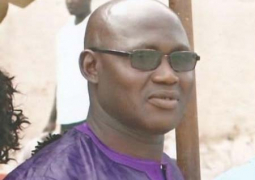Today (May 3rd) is World Press Freedom Day set aside by UNESCO for journalists and other media practitioners to reflect on the problems encountered by them in the course of their work.
This day is observed all over the world, usually through processions and other forms of public manifestations.
This year's theme is: 21st Century: New Frontiers, New Barriers. The Gambia Press Union will be commemorating this day in the form of a symposium to be held at TANGO Hall in Kainfing.
The day is an important opportunity to examine how the independent media has been faring. Are African journalists enjoying the freedom enshrined in Article 19 of the UN Universal Declaration of Human Rights or Article 6 of the African Charter on Human and Peoples' Rights?
The answer is definitely not in the positive. We are still faced with a lot of obstacles in the performance of our work as journalists.
Apart from the arbitrary nature of those actions directed at the media, such as the closure of newspapers and radio stations, arrests and detentions, we have witnessed many other actions directed at journalists across the continent.
Here in The Gambia, we are still reeling from the murder of our Managing Editor Deyda Hydara more than six years year ago, with his killer(s) still at large.
Another area in which the private media feels asphyxiated is, no doubt, in the area of taxation and the ever-rising cost of materials like newsprint and other essentials for newspaper production.
While in other countries the government subsidises the media, to enable it to play its crucial role in nation-building, in this country, it is a completely different scenario.
As we always emphasise in these pages, history has taught that government-private media relationship is often flawed for lack of trust.
The media is more than a public relations institution; so any attempt to frustrate the work of the journalist can be inimical to development.
Journalists have for long been seen as the enemies of the powers-that-be, when this is not actually the case; we are only partners in development.
Simply put, journalists are part and parcel of the democratic dispensation, and their role is equally important as other segments, because of the significant role media play in raising the awareness of the public on sensitive issues affecting the life of all.
Information is not only deemed to be crucial to other sectors of the economy, but considered to be superior because of its transformative effects on them.
It is against this backdrop that Article 19 of the Universal Declaration of Human and Peoples Rights clearly stipulates the need for freedom of information.
Thus, we keep wondering why those who are parties to this protocol and other instruments, of which African governments are signatories, continue to violate the rights of the citizenry.
"A free and badly performing (private) press serves its people far better than an efficient government-controlled press."
Mitchel Burner


